We all know California. Or at least a version of it.
We’ve gotten used to the palm trees waving in the background of sitcoms that are supposed to take place in western Pennsylvania.
We’ve watched the reality shows where not-quite-celebrities lounge beside infinity pools and take calls on speakerphone in their black SUVs.
We’ve seen enough aerial shots of the Malibu coastline that we could probably build a topographic model in our sleep.
We know the elegant Victorian houses of San Francisco, the red dip of the Golden Gate Bridge, the redwood forests, the striated face of El Capitan, all recognizable from films and photographs and our computers’ default desktop backgrounds.
For over a century, California has also been a popular setting for crime novels. From Dashiell Hammett and Raymond Chandler, to Sue Grafton and Laurie R. King, authors have long used crime fiction to show the state’s grittier side.
Lately, a new group of writers is pushing the tradition even further. This new wave of California crime fiction is about peeling back the stereotypical images of California and revealing diverse, complex communities that aren’t always featured on TV. These authors unpack the violent contrast between the state’s natural beauty and the tensions of race, class, and gender that structure daily life.
Almost all of these books offer some moments of sun-kissed glamour that play into California fantasies—but they also represent an important move toward a more textured, nuanced view of the Golden State.
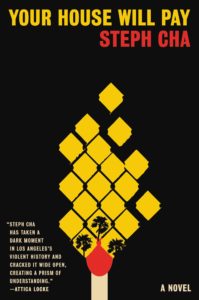
Steph Cha, Your House Will Pay
Steph Cha’s widely acclaimed Your House Will Pay focuses on one of the most formative periods in L.A.’s recent history, the 1992 L.A. riots. As Cha moves between two narrators—an African-American man who lost a loved one in 1992 and a Korean-American woman looking into her family’s mysterious history—she explores interracial tensions and intergenerational trauma with impressive nuance. (If you’ve already read Your House Will Pay, try jumping to Cha’s backlist. Her Juniper Song series follows a would-be private investigator around Los Angeles, offering a perfect update to the tropes of L.A. noir.)
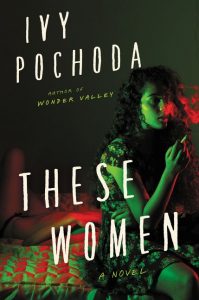
Ivy Pochoda, These Women
Ivy Pochoda’s latest novel examines a neighborhood in South Los Angeles through the eyes of five women who are unknowingly connected by a serial killer preying on their community. In a book that Attica Locke has called “brilliantly plotted and beautifully written,” Pochoda turns the serial killer genre on its head by refocusing attention on the women affected—women who witness, investigate, fear, suffer, and resist.
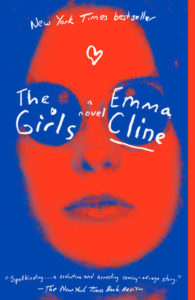
Emma Cline, The Girls
The Girls was marketed more as literary fiction than crime, but it could have easily gone the other way, given the violence and suspense that structures the book. Loosely based on the Manson murders, Emma Cline’s debut is set in the 1970s and follows a young teenager’s increasing involvement with a nearby cult. Cline moved the setting from San Fernando Valley (where the Manson family actually lived) up to northern California, to the rural area around Petaluma. The contrast between the sun-kissed, dusty land and the violence brewing in the cult’s headquarters gives this novel an incredible energy.
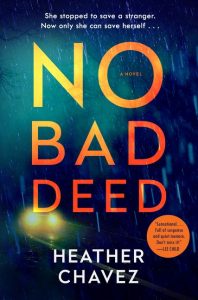
Heather Chavez, No Bad Deed
In Heather Chavez’s debut thriller, a woman stops to help a stranger by the side of the road, only to end up facing a threat to her own family. Set in the hills around Santa Rosa, No Bad Deed has as many twists and turns as the winding roads of Sonoma County. For fans of authors like Liv Constantine or Lisa Gardner, this fast-paced book will give you surprises galore against a beautiful backdrop.

Rachel Howzell Hall, Lou Norton series, starting with Land of Shadows
There have been many police procedurals set in Los Angeles, but few that address the complex social dynamics of police work as thoughtfully as Rachel Howzell Hall’s Elouise Norton series. The first book, Land of Shadows, follows Detective Lou Norton as she investigates a teenage girl’s death that may be linked to her own sister’s disappearance decades ago. Hall’s series features the snappy dialogue often associated with noir authors like Raymond Chandler or Dashiell Hammett, but it also offers a much-needed critique of how race and gender factor into the criminal justice system.
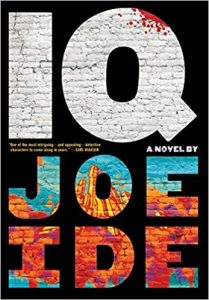
Joe Ide, IQ
Joe Ide’s series transports Sherlock Holmes to twenty-first-century East Long Beach, where Isaiah “IQ” Quintabe investigates crimes that the police won’t get involved in. In the first book, he’s investigating a threat on a rap mogul’s life. Ide’s protagonist is as brilliant and discerning as Conan Doyle’s creation, but with more moral complexity and a stronger sense of community. With its fast-paced plots, energetic style, and vivid evocation of place, Ide’s series both challenges and celebrates popular ideas of California.
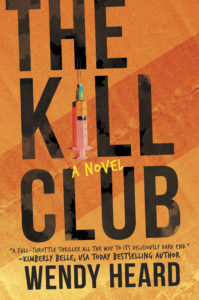
Wendy Heard, The Kill Club
Wendy Heard’s latest novel The Kill Club—a powerful page-turner about an anonymous club of vigilantes who punish domestic abusers—travels around Los Angeles at breakneck speed. A longtime Angeleno, Heard told the Los Angeles Review of Books, “I grew up in the parts of the city that tourists don’t visit, and those are the parts I wanted to include in this book.” The end result is a book that is simultaneously an escapist thrill ride, a searing account of how the legal system fails to punish domestic violence, and a testament to this diverse, multifaceted city.
*


















